 E-scrap processor Cascade Asset Management saw resale prices rise for devices it handled over the past year, according to the company’s recently released annual report.
E-scrap processor Cascade Asset Management saw resale prices rise for devices it handled over the past year, according to the company’s recently released annual report.

 E-scrap processor Cascade Asset Management saw resale prices rise for devices it handled over the past year, according to the company’s recently released annual report.
E-scrap processor Cascade Asset Management saw resale prices rise for devices it handled over the past year, according to the company’s recently released annual report.
 The ITAD arm of a Canadian electronics leasing company has opened a new processing facility near Vancouver, B.C. Continue Reading
The ITAD arm of a Canadian electronics leasing company has opened a new processing facility near Vancouver, B.C. Continue Reading
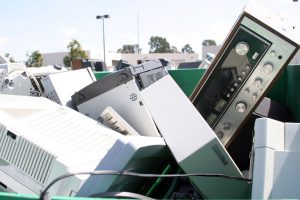 California’s e-scrap program took a hit when ECS Refining closed in June 2018, but it was anything but a critical blow. Other local and national e-scrap companies took up the slack.
California’s e-scrap program took a hit when ECS Refining closed in June 2018, but it was anything but a critical blow. Other local and national e-scrap companies took up the slack.
 A larger Middle East location is allowing Sims Recycling Solutions to process growing quantities of electronics while improving security and reducing the risk of employee injury.
A larger Middle East location is allowing Sims Recycling Solutions to process growing quantities of electronics while improving security and reducing the risk of employee injury.
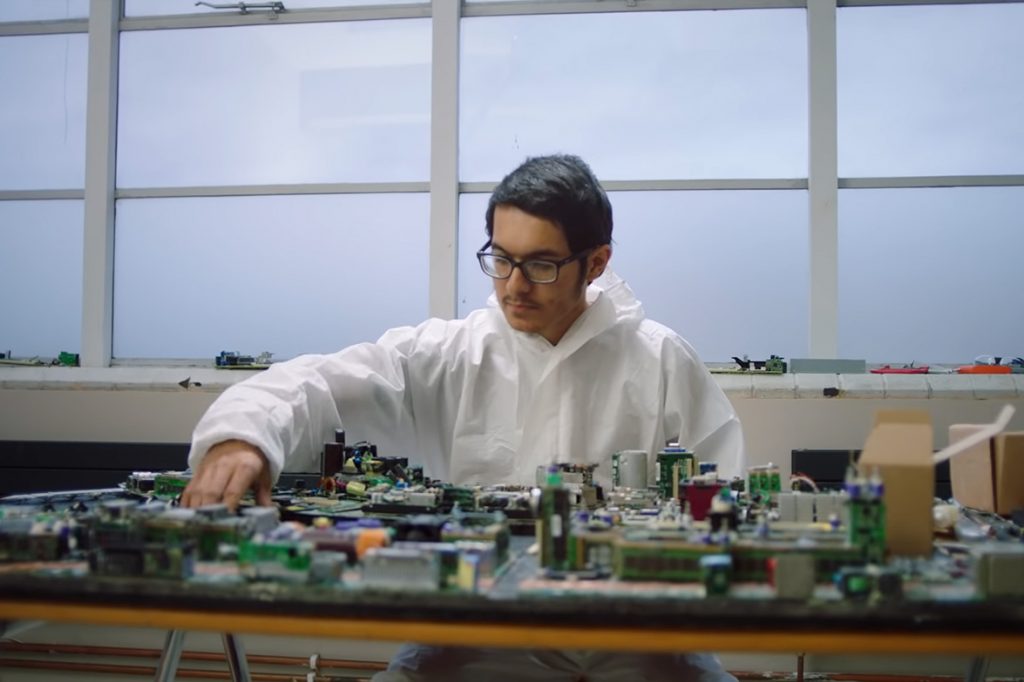
Artist Zayd Menk works on a model of London’s Westminster area, crafted entirely from e-scrap.
A teenage artist collaborated with a U.K. ITAD services provider to create a miniature version of London’s Westminster area – made entirely from e-scrap.
Continue Reading
 Tech Dump is rolling out what it describes as the only national mail-in recycling program that’s owned and operated by a social enterprise.
Tech Dump is rolling out what it describes as the only national mail-in recycling program that’s owned and operated by a social enterprise.
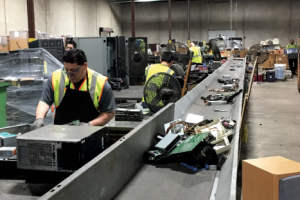 When CompuCycle leaders looked at automating the company’s e-scrap processing, they realized there was no point in reinventing a well-functioning wheel. Colt Recycling, which has done business with CompuCycle, was already successfully using a custom-designed shredding and separation system in New Hampshire.
When CompuCycle leaders looked at automating the company’s e-scrap processing, they realized there was no point in reinventing a well-functioning wheel. Colt Recycling, which has done business with CompuCycle, was already successfully using a custom-designed shredding and separation system in New Hampshire.
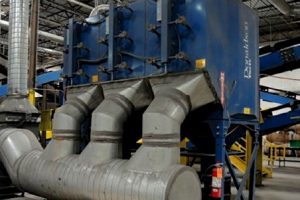 Shredding, sorting and processing machinery that was used by shuttered processor ECS Refining is being sold via an online auction.
Shredding, sorting and processing machinery that was used by shuttered processor ECS Refining is being sold via an online auction.
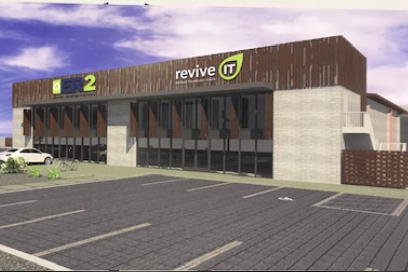 A processor will expand its headquarters, bringing additional inventory storage space and consolidating its Arizona processing operations in a single location.
A processor will expand its headquarters, bringing additional inventory storage space and consolidating its Arizona processing operations in a single location.

The Schupan & Sons headquarters in Kalamazoo, Mich.
Schupan & Sons is upgrading its Kalamazoo, Mich. campus with an expansion of its e-scrap operations and a dedicated health care clinic for company employees.
